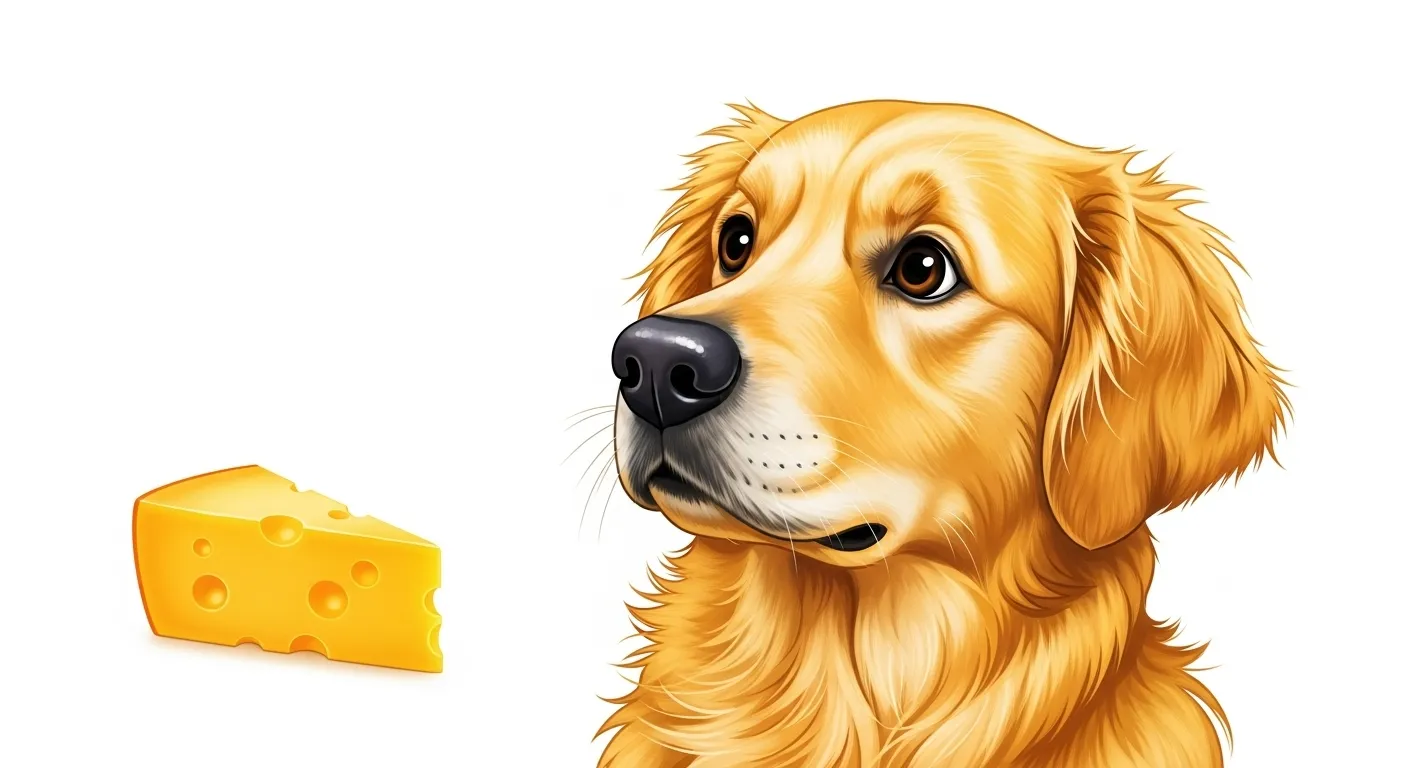Many dog owners wonder if sharing a bit of cheese is okay. The answer isn’t a simple yes or no. Cheese can fit into a dog’s diet under certain conditions, but it comes with caveats. Let’s break down what you need to know based on reliable vet advice.
What Makes Cheese Appealing for Dogs?
Cheese offers some nutrients that dogs can use. It provides protein, which helps with muscle health. Calcium in cheese supports strong bones. You’ll also find vitamin A and some fatty acids that aid overall well-being. These elements make it a handy reward during training sessions.
Still, these perks only matter in tiny portions. Most of a dog’s nutrition should come from their regular food. If you’re looking for other safe treats, consider options like peanut butter for dogs.
Potential Downsides of Feeding Cheese
Not all dogs handle cheese well. Many lack the enzyme to break down lactose, a sugar in dairy. This can lead to stomach upset, like loose stools or gas. Over time, the high fat levels might cause weight issues or even a serious condition where the pancreas gets inflamed.
Some dogs show no problems at first but react after repeated exposure. If your dog has a sensitive gut or existing health concerns, cheese might not be worth the risk. For similar dairy concerns, read our post on can dogs eat yogurt.
Cheeses to Pick and Those to Skip
Choose wisely when it comes to types. Low-fat options tend to be easier on dogs. Cottage cheese stands out as a better choice due to its protein content and lower lactose. Mozzarella, especially the skim variety, works too if kept minimal.
Steer clear of blue varieties—they contain a mold that can harm dogs, causing sickness or worse. Skip any with added garlic, onions, or herbs, as these are harmful. Processed kinds often have too much salt, which isn’t good.
- Safe picks: Plain cottage, low-fat mozzarella, or goat cheese in small bits.
- Avoid: Blue cheese, anything flavored with toxic extras, high-sodium processed slices.
To check other foods quickly, try our pet food safety checker.
How Much Is Too Much?
Keep servings small to stay safe. A good rule: Treats like cheese shouldn’t exceed 10 percent of daily calories. For a small dog, that might mean just a pea-sized piece now and then. Larger breeds can handle a few more cubes, but watch their size and activity.
Start with a tiny amount and observe. Offer it a couple times a week at most, mixed with their meals if needed. For more on balanced diets, see what vegetables can dogs eat.
Watch for Warning Signs
If cheese doesn’t agree with your dog, signs show up fast. Look out for vomiting, bloating, or changes in bowel habits. These point to digestive trouble from lactose or fat.
In rare cases, severe reactions need a vet visit right away. Better to prevent by testing small doses first. If you notice symptoms, use our pet symptom checker for initial guidance.
When to Talk to Your Vet
Always check with a professional before adding new foods. This matters more for puppies, older dogs, or those with conditions like gut issues. They can guide on whether cheese fits your pet’s needs.
In summary, cheese isn’t outright bad, but moderation is key. Stick to safe types and small amounts for a happy, healthy dog. For related reading, explore can dogs eat peanuts.
